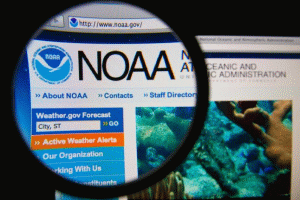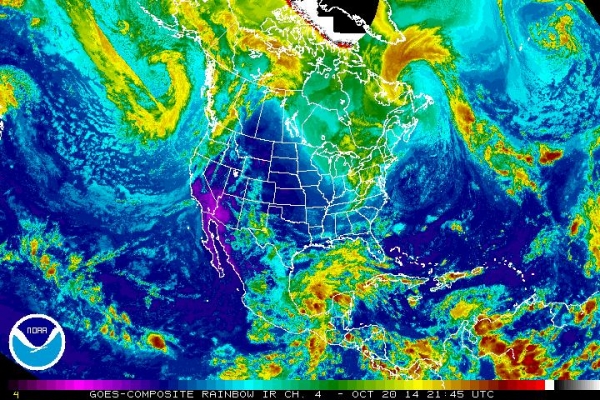Chinese hack weather systems of the USA
Hackers from China breached the federal weather network recently, forcing cybersecurity teams to seal off data vital to disaster planning, aviation, shipping and scores of other crucial uses, officials said.
 The intrusion occurred in late September but officials gave no indication that they had a problem until Oct. 20, said three people familiar with the hack and the subsequent reaction by the National Oceanic and Atmospheric Administration, which includes the National Weather Service.
The intrusion occurred in late September but officials gave no indication that they had a problem until Oct. 20, said three people familiar with the hack and the subsequent reaction by the National Oceanic and Atmospheric Administration, which includes the National Weather Service.
Even then, NOAA did not say its systems were compromised. Officials also said that the agency did not notify the proper authorities when it learned of the attack. NOAA officials declined to discuss the suspected source of the attack, whether it affected classified data and the delay in notification. NOAA said publicly last month that it was doing “unscheduled maintenance” on its network, without saying a computer hack had made that necessary.
“Cyberattack is quite common in today’s cyberspace,” he said. “Jumping to conclusions on its origin without hard evidence is not responsible at all.” The embassy also urged “relevant U.S. parties to stop this kind of unfounded accusation.” But NOAA confirmed to Rep. Frank R. Wolf (R-Va.) that China was behind the attack, the congressman said. Wolf has a long-standing interest in cybersecurity and asked NOAA about the incident after an inquiry.

“We’re in the process of looking into the matter, including why NOAA did not comply with the requirements to notify law enforcement about the incident,” Zinser said. Wolf said he did not know if the breach involved classified material or what information was accessed. Confirmation of the NOAA hack followed an admission Monday by the U.S. Postal Service that a suspected Chinese attack — also in September — compromised data on 800,000 employees, including letter carriers on up through the postmaster general.
The attack in September hit a Web server that connects to many NOAA computers, said one person familiar with the incursion. The server had security protections, but the person compared the security to leaving a house protected by “just a screen door.” Smullen’s statement said that four sites were hit by the breach. Weather satellites orbit hundreds to thousands of miles above Earth and offer continuous views of weather systems, such as hurricanes, thunderstorms and cold fronts, while also measuring temperature and moisture at different altitudes — all crucial bits that feed prediction models.
To get that information to the public, NOAA makes satellite data and imagery publicly available through the Web, as well as file-transfer networks for downloads. NOAA has characterized its decision to cut off satellite images as causing minimal disruption. But it has previously touted those same systems as intrinsic to the nation’s “environmental intelligence.”
“The Chinese are stealing us blind,” Wolf said. The attack on NOAA joins a spate of cyber-espionage on federal systems revealed recently, including an attack suspected from Russia that breached unclassified White House computer networks. The October satellite data outage meant that the National Weather Service and centers around the world did not receive large amounts of information.
“All the operational data sent via NOAA, which is normally an excellent service, was lost,” said Stephen English, head of the satellite section at the European Centre for Medium-Range Weather Forecasts in Reading, England. The center is renowned for running a highly advanced global weather prediction model that during Hurricane Sandy in 2012, for example, aided evacuations and preparations in the United States when it signaled that the superstorm would hit land rather than hook out to sea.
The report echoed the views of a 2009 audit from the IG that said the primary system that processes satellite data from two environmental and meteorological systems had “significant” security weaknesses, and that “a security breach could have severe or catastrophic adverse effects.” The watchdog’s previously unreleased report, obtained by The Post under a Freedom of Information Act request, called for “immediate management attention” and said NOAA’s security planning was so poor that the agency had little idea how vulnerable its system was.
Axarhöfði 14,
110 Reykjavik, Iceland














